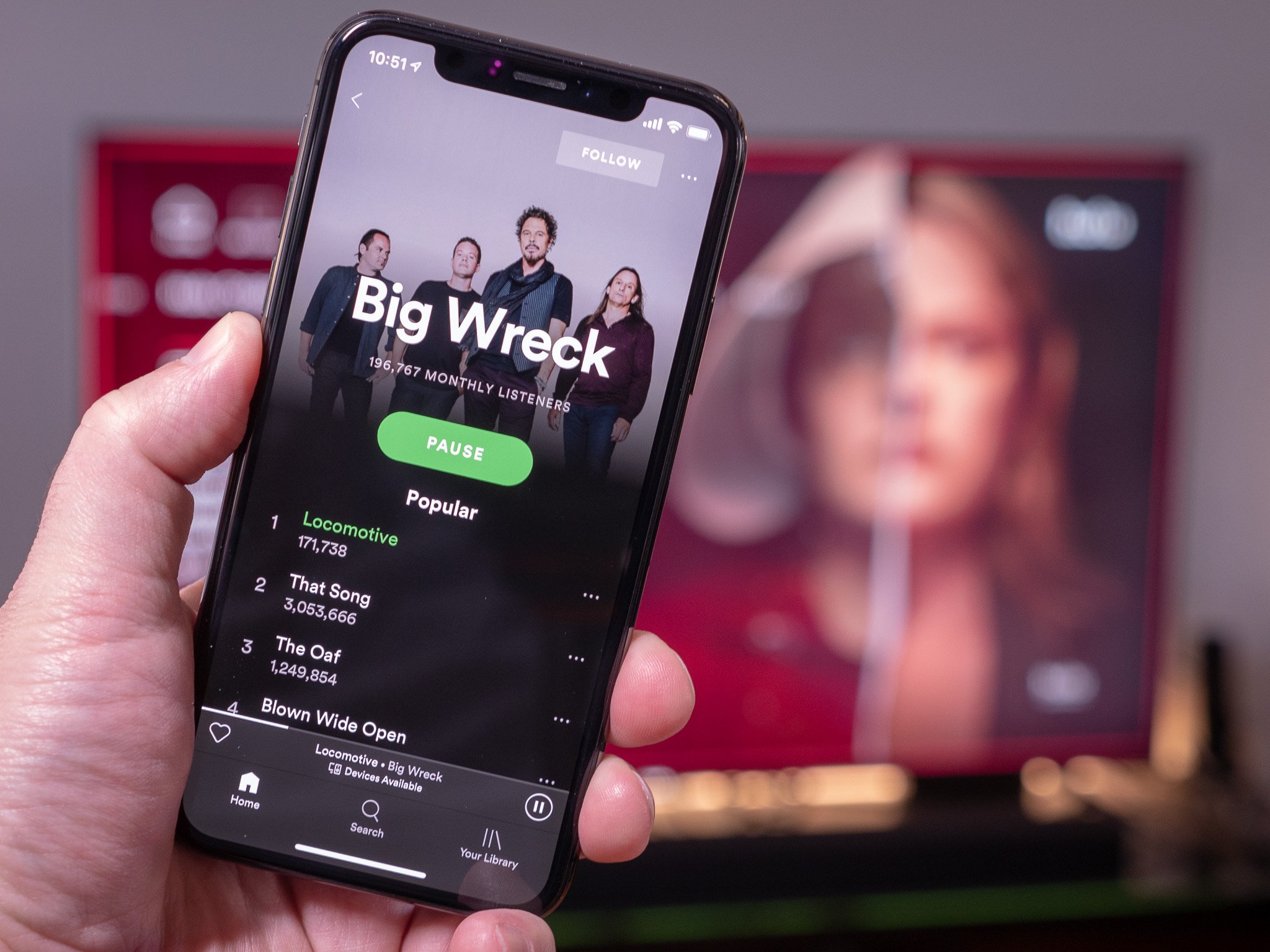"We applaud the Korean government for its leadership in removing barriers to innovation and competition for developers and returning power to consumers."
What you need to know
- South Korea has passed a law that will drastically shake up the iOS App Store.
- The country is going to ban mandates that developers must use Apple's in-app payment system.
- Spotify has welcomed the law.
Spotify has welcomed an amendment to laws in South Korea that will stop companies like Apple from forcing developers to use their in-app payment system on the App Store on devices like iPhone 12.
As reported earlier today, amendments to the Telecommunications Business Act passed by the National Assembly will prohibit companies like Apple and Google from forcing developers to use their own in-app payment systems, paving the way for alternative payments. From that report:
The law is an amendment to the Telecommunications Business Act that will prevent Apple and Google from requiring that developers use their own in-app payment methods on places like the iOS App Store and Google Play. The law also has provisions for preventing unreasonable delay to approval of apps or deleting them from the marketplace so as to prevent retaliation. Failure to comply could mean massive fines for Apple, up to 3% of the company's total revenue in the country. It means developers will be able to process payments using methods other than Apple's in-app purchase methods, potentially depriving Apple of its commission on transactions, although the company has previously said it would still need to collect commission from developers even if they used other payment methods.
One vocal opponent of Apple's App Store policies is Spotify, which says it welcomes the changes. "South Korea's app store in-app payment bill is a welcome legislative achievement that demonstrates the continued global regulatory and legislative momentum to curb Apple's abusive practices in the App Store," a spokesperson for Spotify told iMore. "It is past time to end Apple's monopoly on in-app payments. We applaud the Korean government for its leadership in removing barriers to innovation and competition for developers and returning power to consumers."
Apple, for its part, released the same response it has offered previously to the emerging law, telling us the proposed act "will put users who purchase digital goods from other sources at risk of fraud, undermine their privacy protections, make it difficult to manage their purchases, and features like "Ask to Buy" and Parental Controls will become less effective." The company further added user trust in App Store purchases will decrease as a result of the move, leading to fewer opportunities for developers.
Spotify recently spoke out against a lawsuit between Apple and developers that was settled with minimal concessions made to developers, calling the changes a distraction that failed to address "the most basic aspects" of Apple's "anti-competitive and unfair App Store practices.







0 comments:
Post a Comment